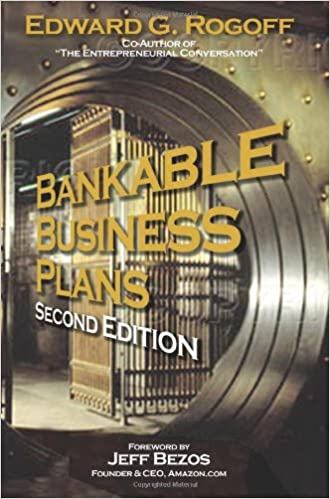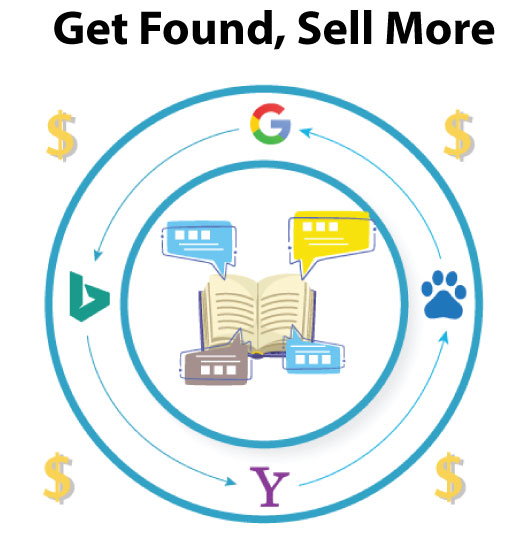Welcome to our Lumos Podcast, My name is Iris Medina and I am happy to introduce today’s guest, who has recently released his new book, Bankable Business Plan for Non-profits. Dr. Edward G. Rogoff, he is the author of over 100 publications and co-author of The Entrepreneurial Conversation. He is a Professor and former Dean of the LIU Brooklyn School of Business. Before that, he was the Lawrence N. Field Professor of Entrepreneurship and Chair of the Department of Management at Baruch College, NY. He received a B.A., M.B.A., M.A., and Ph.D. from Columbia University, where he wrote his thesis under the supervision of Nobel Laureate William Vickrey.
Iris Medina (Lumos Learning): Can you tell us about your new book?
Dr. Edward Rogoff: Bankable Business Plan for Non-profits, It’s a step-by-step guide to help you create a clear, comprehensive, and compelling business plan. Many organizations are non-profits organizations; they don’t really tend to focus so much on the financial aspects of it, which are equally important to them as they are to businesses. And focusing on creating a plan, creating a strategy, understanding the finances is the focus of the book. It would help them raise money to help them generate earned income. So that was sort of the motivation for this, and I’m happy that I get to finish it after a number of years. It turns out that this is a particularly important time for non-profits. They’re struggling as many people, and many organizations are in the shadow of the covid pandemic; they’ve lost revenue, they’ve lost donors. Many of them have had to engage in layoffs, and so this is the time many of them need to rethink their strategy and come up with a plan for moving forward, and I think this book can help them.
Iris Medina (Lumos Learning): With your book you are using tedBook Technology, can you tell us about this technology?
Dr. Edward Rogoff: I had a headstart in connecting with the Lumos Learning TedBook Technology because I have known the founder of Lumos, Mukunda Krishnaswamy, since he started the company. I had shared my frustrations with publishers with Mukunda over the years and as Lumos grew, it developed this TedBook Technology that addressed many of my issues. The overarching benefit of it is that it provides an extremely simple and effective way for me to connect with my readers. When someone buys a book, the author has no way to connect with them to give them updates, invite them to online programs, or sell them the next book. TedBook Technology solves that problem by using a QR code in the front of the book that takes the reader to the TedBook site which has supplemental materials of the author’s choosing and — importantly — collects the contact information on the reader. We all know we are in a data-driven world and this brings that data to the author and puts it under the author’s control.
Iris Medina (Lumos Learning): How has the enhanced Lumos book listing improved visibility to the contents of your book?
Dr. Edward Rogoff: We all know that a book is just a format for delivering information or entertainment. I love books. They are what I have used all of my life as the main way to learn or be entertained. But they are limited in how they deliver this to readers. They have no video, can’t be updated except by a new edition that requires a large additional purchase, and they are entirely a one-way means of communication. TedBook Technology solves these and many other problems. For my recent book, Bankable Business Plans for Non-Profits, I have interviewed experts in particular aspects of this subject and posted the interviews on the TedBook site. I really feel this adds so much to the value of the book. These people share their expertise, tell entertaining stories, and make the book so much more “personal” to the reader. I started with ten half-hour interviews and plan to continue to add more. The interviews can be created by simply recording a Zoom call. There are many other reader “enhancements” that can be created and I will talk about them in upcoming posts.
Iris Medina (Lumos Learning): How does enhanced Lumos listing help authors and publishers sell more books?
Dr. Edward Rogoff: My book helps readers and their organizations create business plans to start a new non-profit organization or grow an existing one. I have one great example of such a business plan in the book, but I would like to offer readers other examples. Business plans take up many pages and it becomes cumbersome and expensive to put them all in the printed book. Being able to post them on the TedBook site solves this problem. Actually, it more than solves the problem because I can make the sample plans downloadable. Importantly, I can make the financial statement templates available to my readers in various forms, such as different levels of complexity, so they can use them as Excel files to then build their own financial statements and projections. I think there are many applications of this feature to virtually any kind of book. I have often read a fiction book and wondered about what else the author might suggest I read. What did he or she like? What influenced their thinking that went into the book I just read? This is something they could post on the TedBook site.
Iris Medina (Lumos Learning): What type of supplemental resources are you offering to your readers via tedBook online access?
Dr. Edward Rogoff: Perhaps the most powerful tool of the TedBook system is the way it used artificial intelligence (AI) to generate questions and answers about the book. In literally a minute or two, the system generates dozens of specific and relevant questions about the book’s content — and it generates the answers. It does require some editing because some of the questions may be about issues that the author considers too small or not of great interest to readers. Take them out in a second. Some of the answers need editing too, but not that much. This book FAQ list serves multiple functions. It can be used for potential purchasers of the book for them to see if the topics covered are what they are looking for. It can be used to help readers of the book skim the list to see where something they are looking for resides in the book. Most importantly, it is searchable by Google. This means it will increase the number of ways and the reasons that Google will direct a search to you and the book and it will raise their rating of the book generally, pushing it up on the list of search results. I can’t overstate the importance and impact of this.
About Prof. Edward G. Rogoff

Professor and former Dean of the Long Island University. He received a B.A., M.B.A., and Ph.D. From Columbia University where he wrote his thesis under the supervision of Nobel Prize winning economist William Vickrey.
Related posts:
No related posts.


